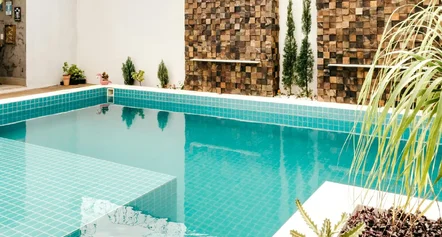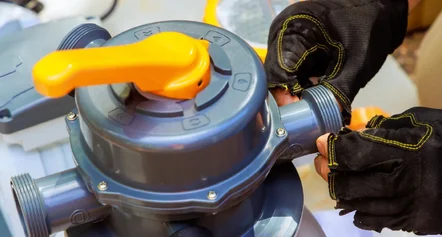Shocking as it may seem, drowning ranks as the primary cause of unintentional death among Australian children aged 1-4. This alarming statistic underscores the paramount importance of pool safety for families with young children. As responsible pool owners, we must ensure that our concrete swimming pools have the safety features to prevent tragic accidents.
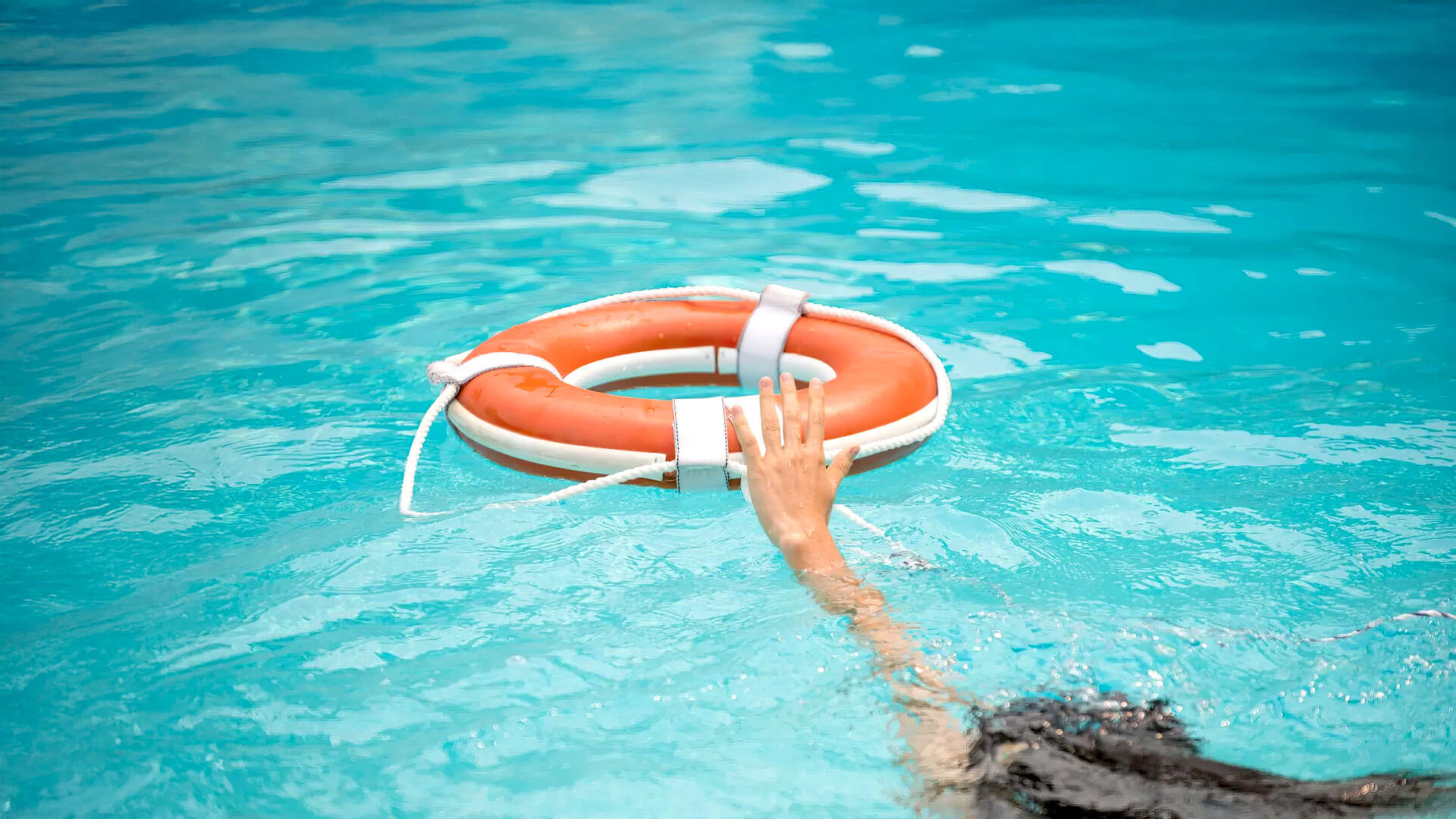
This article aims to provide a comprehensive guide to the essential safety elements that every concrete pool should have, empowering you to create a secure and enjoyable swimming environment for your loved ones.
Proper Fencing and Barriers
A well-designed and properly installed fence or barrier is one of the most critical safety features for anyconcrete swimming pool. Pool fencing serves as the first line of defence against unsupervised access to the water, particularly for young children who may wander into the pool area unnoticed. In Australia, strict standards govern the requirements for pool fencing to ensure maximum safety.
According to Australian regulation 1926.1 - 2012, pool fences must be at least 1.2 meters high, with a maximum gap of 100mm between vertical bars and no horizontal bars that could be used for climbing. The fence should also have a self-closing and self-latching gate that opens outwards, with the latch positioned at least 1.5 meters above ground level.
However, installing a compliant fence is just the beginning. Regular maintenance and inspection of your pool fence are crucial to ensure it remains effective over time. Checking for loose or damaged components and ensuring the gate is always securely latched should be part of your routine pool maintenance.
Other barriers, such as pool covers and safety nets, can provide an extra layer of protection in addition to fencing. Pool covers, when properly installed and maintained, can prevent accidental falls into the water and help reduce evaporation and heat loss. Safety nets, designed to catch anyone who may fall into the pool, can effectively complement traditional fencing.
Pool Covers and Safety Nets
Pool covers and safety nets are valuable additions to any concrete pool’s safety features. Using a pool cover can significantly reduce the risk of accidental falls into the water, especially when the pool is not in use. Pool covers also offer the added benefits of reducing evaporation and heat loss, which can help you save on water and energy costs.
Types of Pool Covers
- Solid Covers: When properly secured, these covers provide a complete barrier over the water surface, preventing access to the pool. They are excellent for off-season protection and help keep debris out of the pool.
- Mesh Covers: Unlike solid covers, mesh covers allow rainwater to pass through while providing a barrier against accidental falls. They are famous for pool owners who want to maintain water levels during the off-season without constant pumping.
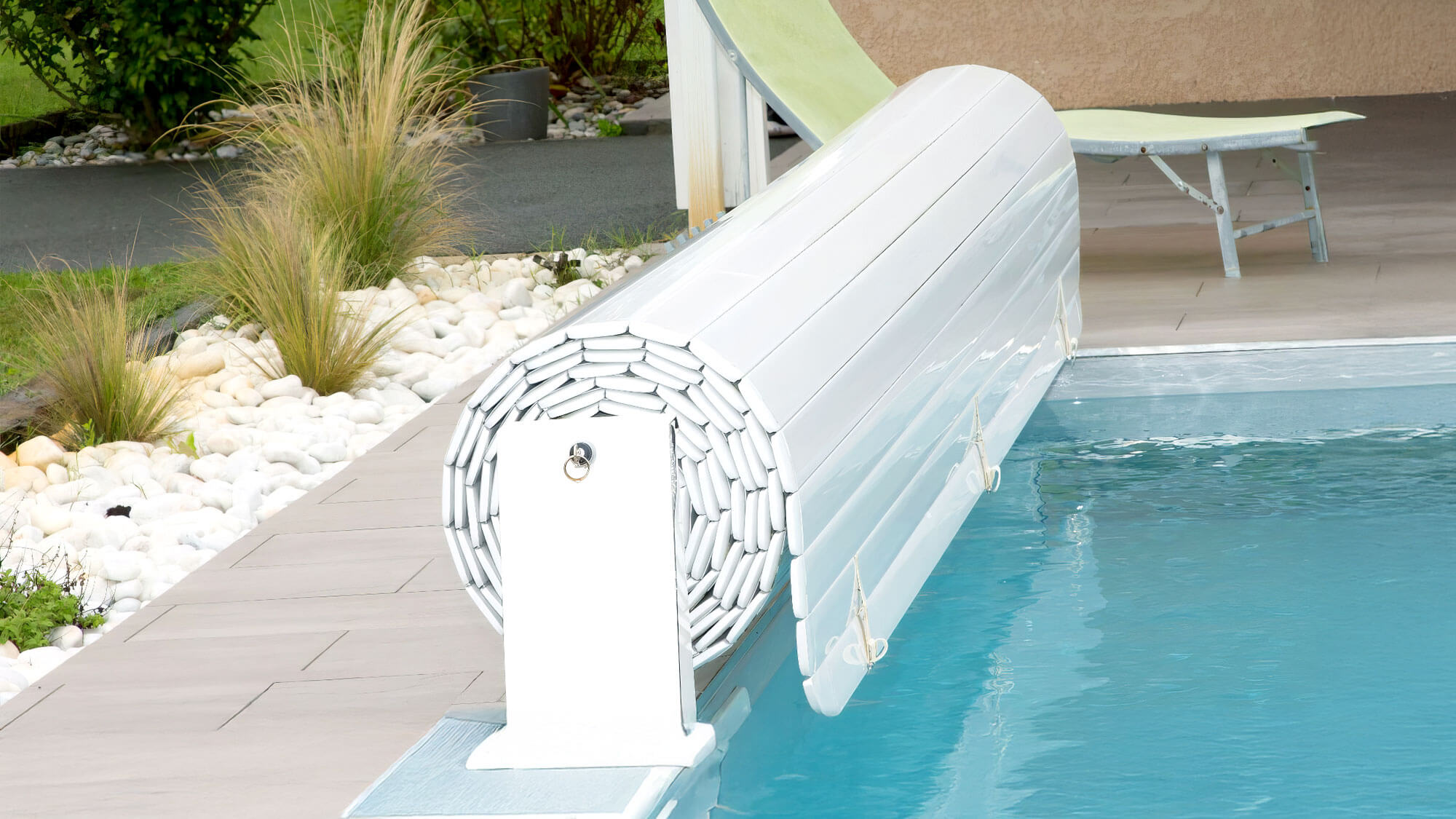
Safety Nets
Safety nets, installed above the water surface, provide additional protection. They are designed to catch anyone who may fall into the pool and prevent them from sinking below the water. Safety nets are handy for families with young children or pets who risk falling into the pool.
Proper installation and maintenance of pool covers and safety nets are essential to ensure their effectiveness. Covers should be securely fastened to the pool deck, and safety nets should be regularly inspected for any signs of wear or damage.
Pool Alarms and Sensors
Pool alarms and sensors are designed to alert you when someone unexpectedly enters the pool, providing an early warning that can help prevent accidents and save lives.
How Do Pool Alarms Work?
Pool alarms work by detecting disturbances in the water caused by movement or waves. When the alarm is triggered, it emits a loud sound to alert you of potential danger, allowing you to respond quickly and ensure the safety of those in or around the pool.
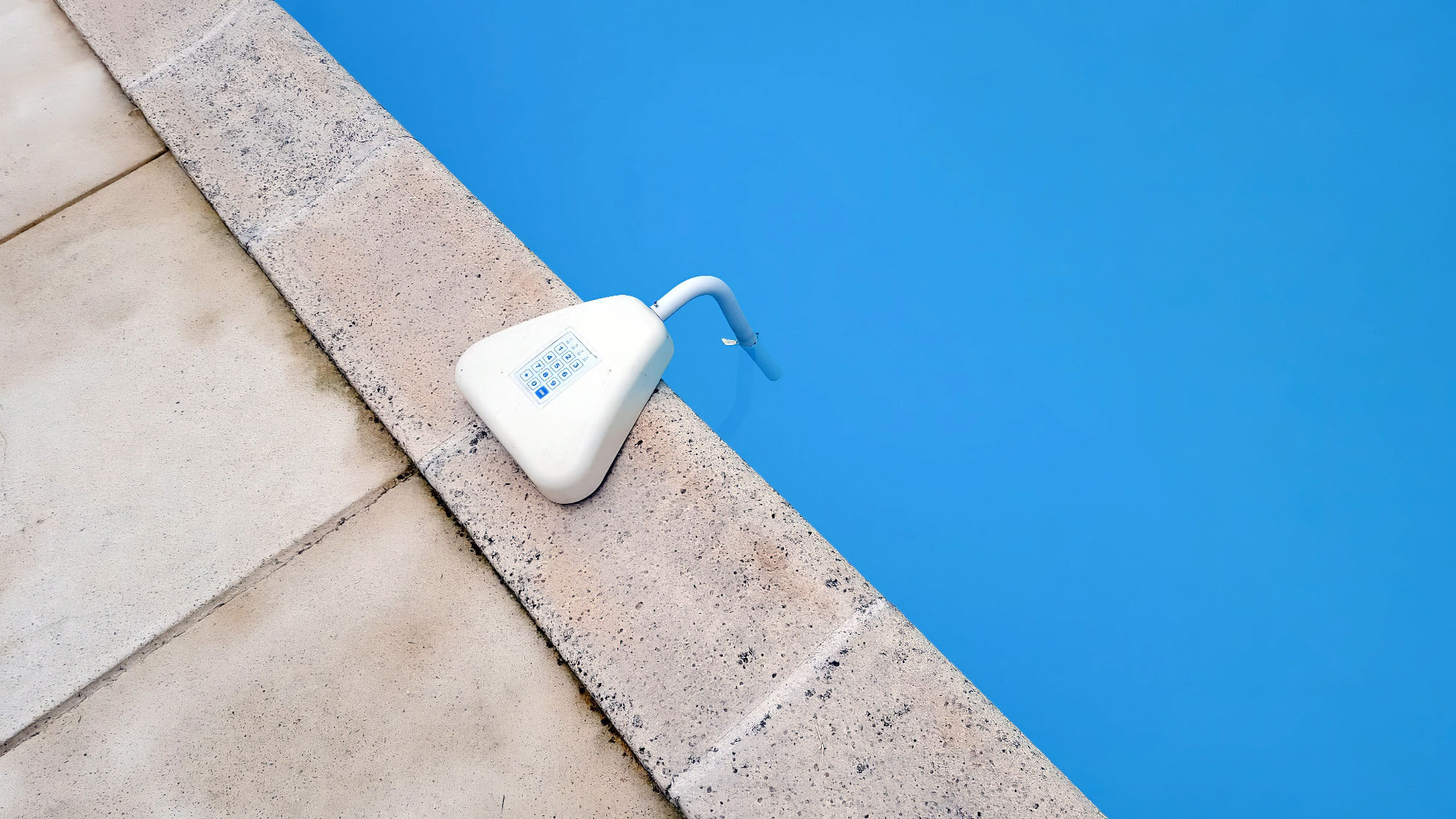
Types of Pool Alarms
Surface Wave Sensors
These alarms are installed on the pool deck and use advanced technology to detect surface waves created by objects entering the water. When the sensors detect a disturbance, the alarm is triggered, notifying you of the potential emergency.
Subsurface Disturbance Sensors
Placed below the water surface, these sensors detect changes in water pressure caused by water displacement when an object or person enters the pool. These alarms are highly sensitive and can detect even minor disturbances in the water.
Wearable Alarms
These alarms are designed for individual swimmers, typically children. They are attached to a wristband or clothing. If the wearer enters the water unexpectedly, the alarm alerts nearby adults.
Proper installation and maintenance of pool alarms are crucial to ensure they function effectively when needed. Following the manufacturer’s guidelines and regularly testing the alarms is essential to confirm they are in good working order.
Integrating pool alarms with your home security system can provide an added layer of protection. Connecting your pool alarms to your smart home system lets you receive alerts on your mobile device, even when you are away from home, ensuring that you are always informed of any potential pool-related emergencies.
Safety Equipment and Signage
Proper safety equipment and signage around your concrete pool are essential for creating a safe swimming environment.
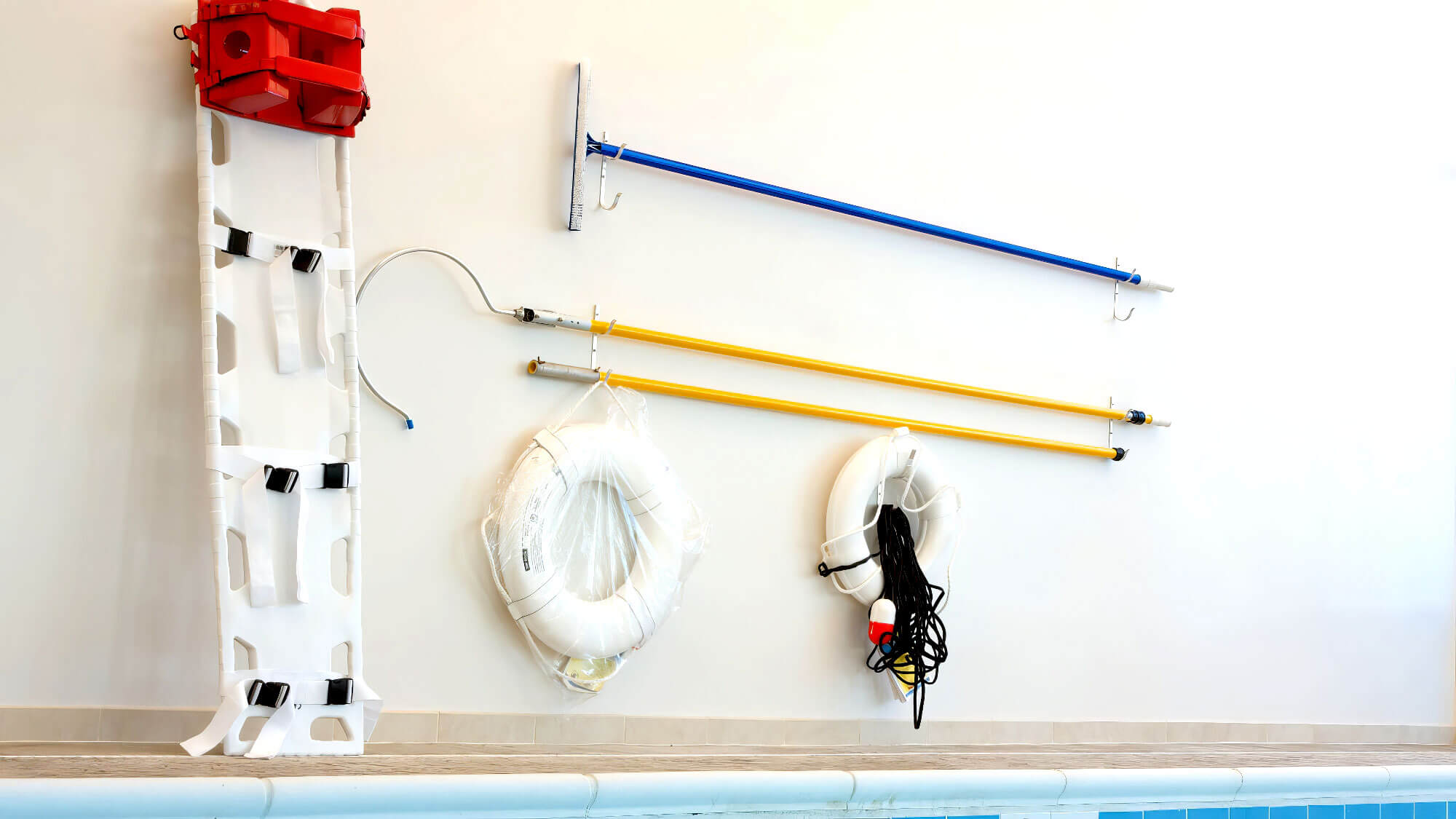
Essential Safety Equipment for Concrete Pools:
- Life Rings and Throw Bags: These flotation devices should be readily accessible and thrown to a swimmer in distress, supporting them until help arrives.
- Reaching Poles: Long, lightweight poles equipped with a hook or loop on the end can pull a struggling swimmer to safety from the pool deck.
- First Aid Kits: A well-stocked first aid kit should be easily accessible and include bandages, antiseptic, and scissors to address minor injuries that may occur around the pool.
It is crucial to ensure that all safety equipment is easily accessible and visible to anyone using the pool area. Regular inspections should confirm that the equipment is in good condition and ready for use in an emergency.
Proper Signage Around the Pool Area:
- Depth Markers: Marked depth indicators help swimmers gauge the water depth and avoid areas too deep for their abilities.
- “No Diving” Signs: Diving into shallow water can lead to severe injuries. Placing “No Diving” signs in appropriate areas can help prevent these accidents.
- Emergency Contact Information: Displaying emergency contact numbers, such as local emergency services and the pool owner’s contact details, ensures that help can be quickly summoned during an accident or emergency.
Swimming Lessons and Supervision
One of the most effective ways to promote pool safety is by teaching children to swim and ensuring proper supervision. Learning to swim is a crucial life skill that can help prevent drowning accidents and instil confidence in children around water. Enrolling children in professional swimming lessons taught by certified instructors can provide them with the necessary skills and techniques to stay safe in the water.
Pool owners should establish clear supervision guidelines to ensure the safety of all swimmers. Designating a responsible adult to act as a “water watcher” is essential, especially when children are present. This person should maintain constant visual contact with swimmers, avoiding distractions such as phone calls or conversations that may divert their attention from the pool.
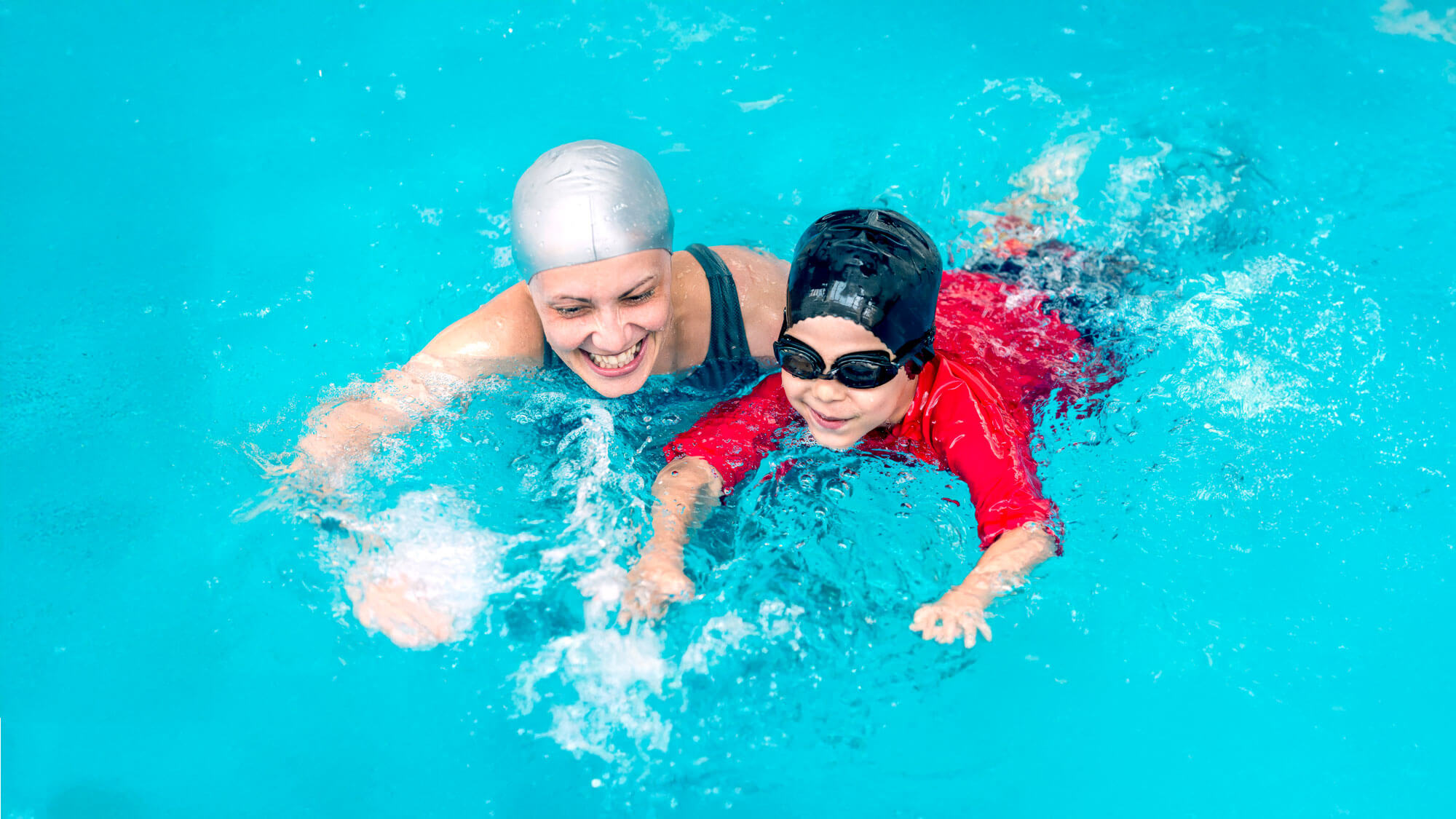
Another critical aspect of supervision is establishing and consistently enforcing pool rules. These rules may include no running around the pool deck, no diving in shallow areas, and requiring children to wear life jackets if they are not strong swimmers.
Setting clear expectations and consequences for violating pool rules can help create a safe and enjoyable swimming environment where accidents can still happen even with proper swimming lessons, and supervision is essential.
It is crucial to have a well-rehearsed emergency plan and ensure that all family members and guests are familiar with it. Combining swimming education, adequate supervision, and emergency preparedness can significantly reduce the risk of pool-related accidents and ensure a safe and enjoyable experience for all swimmers.
Regular Maintenance and Inspections
Regularly maintaining and inspecting your concrete pool ensures its longevity and safety. A well-maintained pool looks great and helps prevent accidents and injuries caused by potential hazards.
Regular pool maintenance tasks, such as cleaning, balancing the water chemistry, and checking the filtration systems, keep your pool in top condition and reduce the risk of safety issues.
Checking for Potential Safety Hazards
Loose or Damaged Tiles
Inspect the pool surface for loose, chipped, or cracked tiles that could cut or abrasion swimmers’ feet.
Cracks in the Concrete
Check for any cracks in the concrete pool shell or deck, as these can lead to leaks or structural instability if left unrepaired.
Malfunctioning Equipment
Regularly test and maintain pool equipment, such as pumps, filters, and heaters, to ensure they function correctly and do not pose safety risks.
Scheduling Professional Inspections
In addition to regular self-inspections, it is advisable to schedule professional pool inspections at least once a year. A trained pool inspector can identify potential safety hazards and recommend repairs or upgrades to keep your pool in optimal condition.
Peace of Mind with Flamingo Pools
At Flamingo Pools, we understand that the safety of your loved ones is of the utmost importance when it comes to your concrete swimming pool. Our experienced professionals are dedicated to providing you with the highest quality safety features and expert guidance to create a secure and enjoyable swimming environment for your family.
With our extensive knowledge and commitment to pool safety, we work closely with our clients to design and install concrete pools incorporating the latest safety features, such as proper fencing, pool covers, safety nets, alarms, and essential safety equipment. Our goal is to provide you with peace of mind, knowing that your pool is equipped with the necessary elements to prevent accidents and ensure the well-being of your family and guests.
If you are considering a new concrete pool or looking to enhance the safety of your existing pool, we encourage you to contact Flamingo Pools today. Our team is ready to assist you in creating a safe and beautiful swimming environment that your family can enjoy for years.


